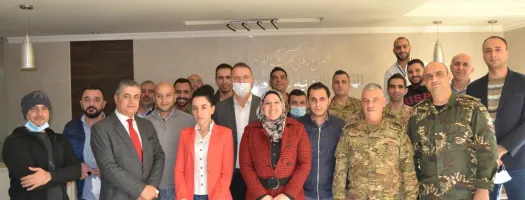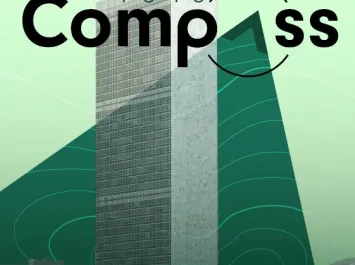On 7-10 December 2020, the Lebanese Atomic Energy Commission (LAEC), with the support of UNICRI held a four-day national training entitled “Combating illicit trafficking of Radioactive and Nuclear Materials” for the Lebanese officers responding to nuclear security events and illicit trafficking operations. The training was conducted within the framework of the project “CONTACT – Enhancing capacities to prevent the trafficking of radiological and nuclear material in the Middle East”.
A total of fourteen participants from the Lebanese security agencies have participated in the training, including from the General Security (GS), the Internal Security Forces (ISF), the Lebanese Armed Forces (LAF), the Lebanese Customs, and the Lebanese Atomic Energy Commission (LAEC). The aim of the training was to enhance the participants’ knowledge of radioactive and nuclear materials subject to potential smuggling operations and unauthorized use. In addition, the training aimed to enhance the participants’ skills in prevention and detection of illicit trafficking operations involving radiological and nuclear materials.
The threat of illicit trafficking and the role of relevant intelligence operations were discussed through the training. In addition, basic information about ionizing radiation and radiation protection was acquired by the participants. At the end of the training, the participants were knowledgeable of the detection equipment needed during search operations and their proper use, as well as the need for intelligence information to support the identification of those involved in illicit trafficking of radiological and nuclear material.
“The national training on combatting illicit trafficking was held during challenging times in Lebanon,” highlighted Dr. Rana Baydoun, Researcher – National Emergency Officer / Environmental and Border Radiation Control Department Lebanese Atomic Energy Commission (LAEC). “Nevertheless, the training was fruitful and represented a good example of coordination between national stakeholders involved in nuclear security. The frontal lectures enhanced the knowledge of participants operating in the field. The scenarios and TTX exercises allowed participants to discuss the role of relevant institutes and the coordination mechanism in case of illicit trafficking of Radiological and Nuclear materials,” added Dr. Baydoun.
The CONTACT – Middle East project is aimed at enhancing capacities of state security, law enforcement and nuclear regulatory authority officials of Iraq, Lebanon and Jordan to carry out intelligence and law enforcement operations aimed at thwarting RN trafficking attempts. The project is generously funded by ‘Global Affairs Canada’.
CONTACT is the first project in the Middle East that focuses on intelligence operations to counter RN illicit trafficking. Previous international projects have concentrated efforts on the provision and use of radiation detection equipment to identify illicit trafficking. However, the “human factor” is of equal importance, as demonstrated by the fact that the majority of successful seizures of radiological and nuclear material is attributable to soundly planned and executed intelligence operations. With the CONTACT project, UNICRI is working with countries in the Middle East to share good practices and reinforce capabilities to effectively and carefully plan intelligence and law enforcement operations as well as the exchange of information at the national, regional and international levels.



